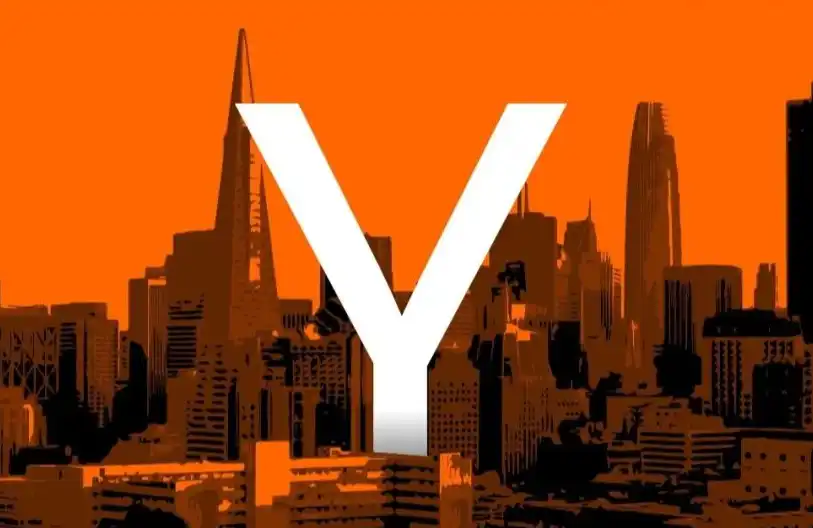IOSG: Is account abstraction the end of smart contract wallets?
原文标题:《 IOSG Weekly Brief |账户抽象会是智能合约钱包的终局吗? 》
Original source: Sid, IOSG Ventures
Is the wallet experience really failing
Imagine that every video you watch on Facebook, or comment on a favorite post or picture, you have to log in before you can use it. Over time, fewer and fewer users will use it.
The way blockchains are built today, there is friction over user experience from the wallet layer, the interaction layer, and the settlement layer.
Hasu (strategy lead from Flashbots and strategic advisor to Lido Finance) describes some bad experiences with wallets when interacting with 2-3 DeFi protocols. The chart below compares the current state with the ideal state.

With many game studios starting to develop on-chain games and developers' interest in developing social applications, is the current infrastructure ready for the next billion users? What if the user experience is bad?
Status of ecosystem
There are other solutions to enhance the user experience and security of the wallet. I break them down into the following two categories:
Account abstract wallet
Wallets using the underlying EOA
-MPC (Multi-party computing wallet) type
-MultiSig Multisig wallet
MPC
A multi-party computing wallet (MPC) is where the single private key of the EOA is dispersed into smaller pieces and securely stored between three different parties. The m/n or n/n parties can sign the transaction together, which can be users, devices, and third party services.
Sharded keys are usually stored and calculated off-chain, which may not be in the spirit of decentralization, but is a very secure way to manage wallets. Services that improve user experience by reducing the barriers to private key management, such as SSO, can be built on top of the MPC wallet. Such as Fireblocks, Anchorage, etc.
Multiple signature wallet
Multi-sign wallets are smart contract wallets that require 2 or more external accounts to sign transactions. Multi-sign wallets don't have many use cases for individuals, but they can be very effective for organizations. In the case of preventing a single user from escaping with money or assets belonging to more than one person, multi-signature is currently the best option. Take Gnosis Safe, an industry benchmark.
Account abstract wallet
Account abstraction is a new technology unlocked by IP-4337 that opens new horizons for Web3 users.
Let's take a closer look at the account abstraction (AA).

Account abstraction and its importance
To understand what an account abstraction is, we need to understand what an account means. Ethereum (and most other EVM-based chains) has two types of accounts, which are:
Externally Owned Account (EOA) Externally owned Account (EOA) Contract Account (CA)
Externally owned accounts are generally wallet accounts owned by users, and contract accounts are smart contract addresses. In the account abstraction, we mainly talk about external account EOAs.
The architecture of EOAs uses a pair of keys to authenticate transactions: a public key and a private key. They are used to prove that the transaction was indeed signed by the sender, thus preventing forgery. The private key is generated by a "mnemonic" that the user obtains when opening the wallet.
The private key is used to sign the transaction to ensure that it is signed by the account owner and to prevent malicious transactions. Ownership of the private key defines the "self-escrow" of the EOA.
This architecture works well for Web3 educated users to some extent, but it has many problems.
Wallet access
Creating EOAs is simple and free, but each transaction costs ETH. This requires users to interact with a centralized exchange or have someone send ETH to their external account EOA.
The second problem is that users need to save mnemonics. The importance of the private key cannot be understood by users who are not previously aware of this behavior.
Private key management
The user (the EOA owner) does not know the importance of the private key, only that he or she must not share his or her mnemonic with anyone. So the learning curve to get users to join Web3 is quite high and cumbersome.
Dependency on the ECDSA signature
The current way to sign transactions on Ethereum is to use an ECDSA signature. ECDSA signatures are not quantum-antagonistic (Elliptic curve cryptography is susceptible to Shor "s algo, a modified Shor algorithm for solving discrete logarithm problems on elliptic curves, which quantum computers can easily run). This is not a direct impact, but given the future of Ethereum, we need to think about what could happen in the future.
Action = Trade
Today, any action a user takes on the chain is considered a transaction. It is therefore very inefficient for users when they must perform multiple actions to complete a transaction. For example, if a user is going to play a Web3 game, it kills the fun when every action in the game requires a transaction signature.
Why not choose an existing smart contract wallet?
From the user's point of view, the smart contract wallet can do this by adding private key management to the EOA and then adding a repeater to help with gas subsidies. The process is shown in the following figure.

The problem with this system is that EOAs also still require private key management. While these private keys can be managed securely, there is still a need to rely on a third-party service MPC/ multi-signature service provider. Web3Auth uses the MPC system, while Safe Wallet uses a multi-signature mode. For gas subsidies, there are also external dependencies on Repeaters (such as those provided by Biconomy).
It is always better to use one of these execution layers built into the blockchain itself than to rely on a third party, as others may fail.
Future trend
As Vitalik and the team make it very clear that Ethereum is moving toward eliminating EOAs as a whole, all wallets that are currently implementing ERC-4337 will lose their unique value proposition that is currently better than EOAs.
Speaking of which, in these two years (since the account abstraction was first proposed), wallets that implement ERC-4337 will be clustered and distributed, and wallets are sticky products while users are using the blockchain.
While Ethereum's ultimate goal is to remove EOAs from the Ethereum network, getting rid of EOAs is not as easy as one might think. There are trade-offs.
Since only ERC-4337 exists, it is not possible to convert existing EOAs to AA wallets. Gas inefficiencies (42,000 for a basic UserOperation versus 21,000 for a basic transaction) benefit less from in-protocol anti-review technology, Such as crLists, a mechanism that forces a verifier to add transactions to a block in mempool, which misses user actions for transactions. (crLists does not apply to UserOperation mempool).
The Ethereum Foundation recognizes these trade-offs and has proposed a possible solution to address them.
Convert EOAs to contract accounts. The EOAs needs to be allowed to perform an operation to set its contract code. Once an EOA does this, the transformation is irreversible; From then on, the account will function only as a smart contract wallet. Therefore a new EIP must be created. The proposal is to create a function called the AUTHUSURP. (Reference reading: EIP:5003) Reduce Gas. This is possible (but there is no explicit ETD) when Verkle tree lines. However, bundling UserOperations into a transaction can be more economically efficient than doing a UserOperation in the same block.

Wallet type comparison
summarize
Learn how account abstraction works, what problems it solves, and how it differs from other types of wallets. We can predict that account abstraction will prevail in the following ecosystems.
game
As expectations for blockchain gaming strengthen in 2023, AA wallets will play a pivotal role in the success of blockchain gaming. The user experience of on-chain games will be greatly improved with Session Keys. Session Keys allows users to pre-approve transactions for an application based on a set of parameters: such as a quantitative duration, the maximum amount of gas, the maximum amount of transactions for a particular token, or the specific functionality of a particular contract. Users will be able to use some basic terms to pre-approve their session, click Start, and play the game to avoid being constantly bombarded with their wallet, allowing you to confirm the transaction. They only have to worry about parts of the blockchain when the game is offline or when tokens are exchanged. Wallet vendors like Sequence are already doing this with major blockchain games to improve the experience for gamers.
DeFi

DeFi users have poor experience when using the DeFi protocol. Because every time a user wants to complete a trade on the perpetual futures platform, they have to sign two trades and pay for Gas twice. During that time, transaction prices can change.
High-frequency traders can complete trades faster and with a better experience when using an account abstract wallet. Account abstraction allows DApps to interoperate with bundled transactions within a single transaction. For example, now I can store ETH in Aave, and exchange the AETH I receive for USDC, all in one transaction. Bundled transactions and session keys will help existing DeFi users have a better experience; The SDK-based approach will not be adopted by DeFi because DeFi is a private and highly intentional use case, so we need to be familiar with the user's requirements, not divorced from the user. Often DeFi users are also familiar with how the chain works.
Web3 Social (DeSoc)
Web3 Social has a strong narrative in 2023.

This is one of the biggest trends the market is watching and builders are targeting as the next million users flood the cryptocurrency market via desocs and NFTs. Account abstraction can help users sign in with minimal friction points through the SDK, and there may be some initial Gas sponsored entry into Paymaster to help users have a smooth experience, using Session Keys to interact with social dApps.
In summary, the SDK-based account abstraction approach is great for use cases with more consumers, such as DeSoc, Web3 games. At the same time, independent wallets will have more application directions in the DeFi field.
Original link
Welcome to join the official BlockBeats community:
Telegram Subscription Group: https://t.me/theblockbeats
Telegram Discussion Group: https://t.me/BlockBeats_App
Official Twitter Account: https://twitter.com/BlockBeatsAsia


 Forum
Forum Finance
Finance
 Specials
Specials
 On-chain Eco
On-chain Eco
 Entry
Entry
 Podcasts
Podcasts
 Activities
Activities
 OPRR
OPRR









